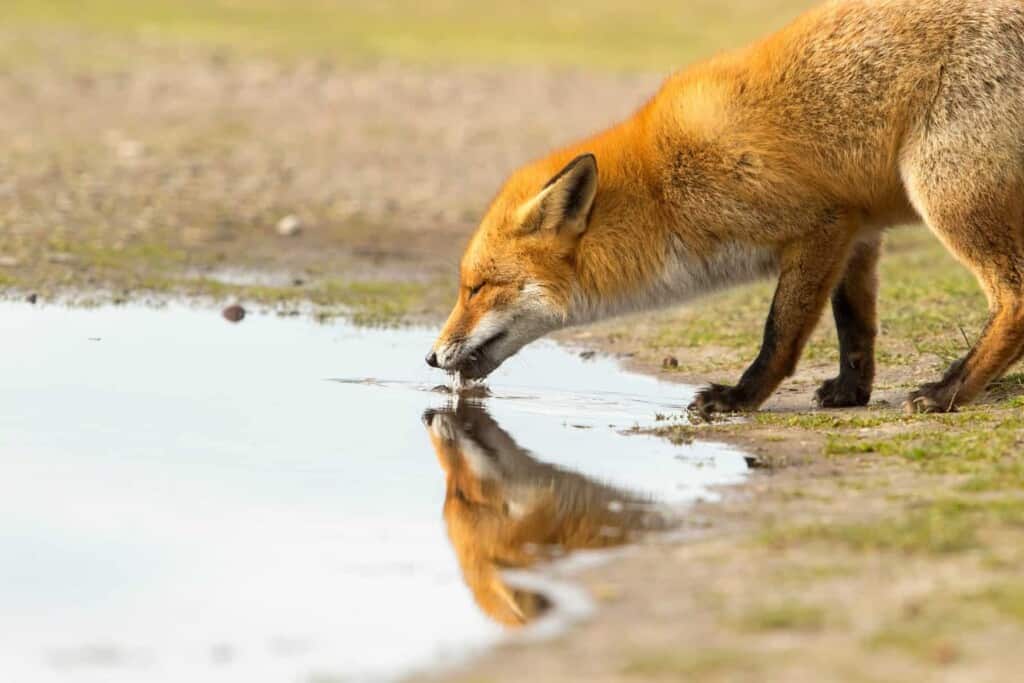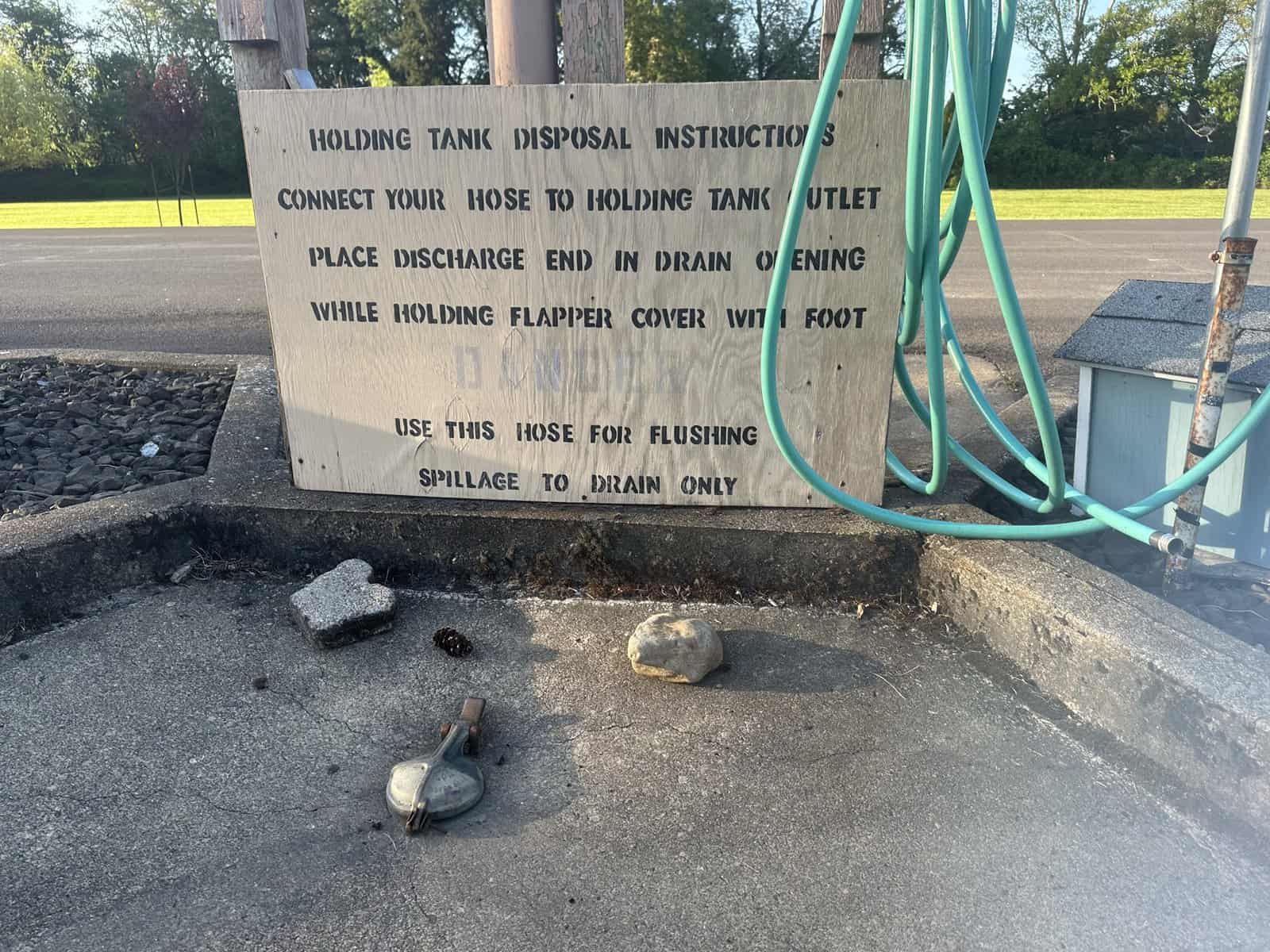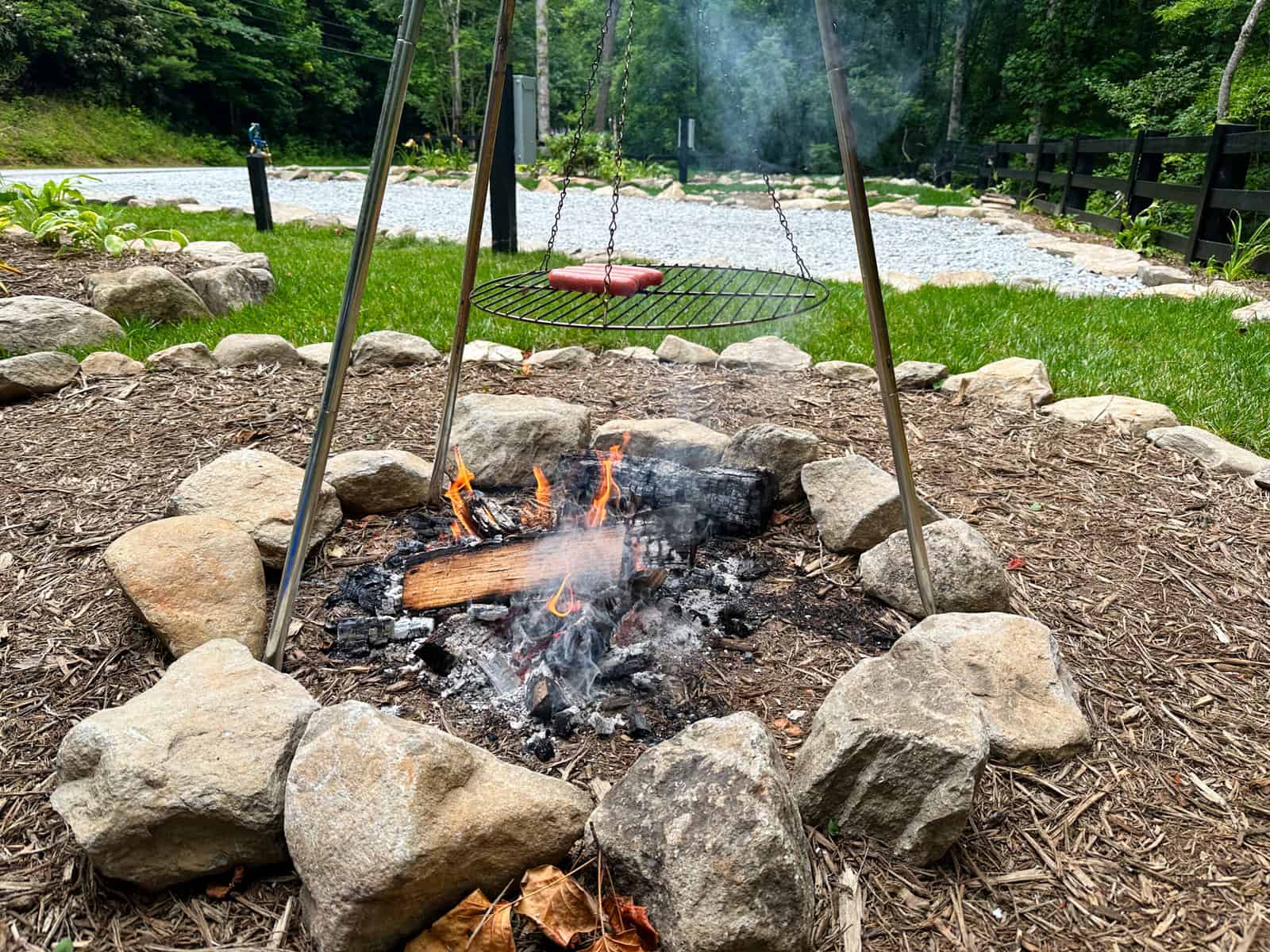RV camping gives us easy access to fresh water. Once you use that fresh water to shower or wash dishes, it’s classified as “gray water” that’s unsafe to use.
But is it actually illegal to dump gray water on the ground?
When your RV gray water tank fills up, here’s what to consider before doing something that’s against the law (and potentially bad for the environment).
Why it’s usually illegal to dump gray water on the ground:
There are technicalities and loopholes behind gray water dumping without a dump station. But this practice is usually illegal (or at least frowned upon).
Gray water can negatively impact the environment, and it creates an unpleasant setting for your fellow campers.
Gray water can negatively impact the environment, and it creates an unpleasant setting for your fellow campers. It’s always best to seek out an official dump station if possible.
However, like many camping questions, this topic has some nuance.
We’ll break down the nitty-gritty elements of the gray water dumping topic below, so read on!
What is RV Gray Water? And When Is It Dangerous, If Ever?
You can usually define water itself into three categories:
Gray water falls in the middle of this scale.
It may not be dangerous per say, but it can cause some unpleasant side effects if you just dump it on the ground. Instead, it’s best to visit a dump station so the water can be processed and recycled.
As mentioned above, gray-water dumping on the ground is usually against the law. However, there’s a bit of a grey area because not every location can agree on what qualifies as “gray water.” Some places say that it’s any water that hasn’t made contact with food particles, while others say that it’s water that isn’t sewage-related.
The laws about gray water dumping vary from state to state.
Some areas strictly forbid it, while others may allow it under specific circumstances. For instance, some BLM areas allow visitors to dump their gray tanks as long as they take certain precautions. The rules are also more lax if you dump on your own private property.
Different states have different laws for this situation. They also have their own definitions for what qualifies as gray water, so what is acceptable in one state might be illegal in another. This isn’t a comprehensive list, but you can check waterwisegroup.com to view some of the different rules and regulations about dumping your RV tanks.
Fines for illegal gray-water dumping can range from hundreds to thousands of dollars. It’s a good idea to avoid this practice altogether, just to stay on the safe side.
The Dangers of Dumping Grey Water on the Ground

Ultimately, it’s up to each RVer to decide if they will or won’t dump their gray water on the ground. Most areas don’t strictly enforce dumping laws, so it’s more of an honor system. However:
Legality aside, it’s always a good idea to get your wastewater properly treated. This practice protects the environment and creates a more pleasant experience for yourself and your fellow campers.
If you need more evidence against outdoor dumping, here are a few potential dangers that gray water poses.
Soil Contamination
When you dump water onto the ground, it probably absorbs pretty quickly. Out of sight, out of mind right? Unfortunately, gray water can contaminate the soil and create a variety of issues for local plants. For instance, it can alter the pH levels, dry out the soil due to high salt levels, or introduce non-absorbent materials like grease.
Unpleasant odors
One of the most noticeable consequences of gray water dumping is the smell! You might not think that this type of water would be smelly, but remember that it contains a mix of soap, food particles, dirt, hair, and other substances. If these materials are left in the open air, they can develop a pretty nasty smell!
Attracts insects and pests
You might not notice the food particles in the water, but pests certainly will! Many animals are attracted to strong smells, including insects, rodents, birds, and even bears. You could lure these unwelcome visitors to your campsite if you dump your gray water nearby.
Harmful to wildlife
Plants and animals are not designed to interact with gray water. They cannot digest the contents and can even be poisoned by all the foreign substances. You could kill local wildlife when you dump your RV tanks onto the ground, and nobody wants that!
Runoff & water contamination
If you’re in a state/area that permits gray water dumping, there are usually rules about where you can empty your tank. For instance, some places say that you cannot dump within 100 feet of a water source, whether that’s a river, pond, or ocean. The runoff can damage the surrounding area and contaminate the water that other people rely on. In addition, water contamination can lead to algae blooms. These choke the natural wildlife and turn the water into an unlivable environment.
6 Best Practices for RV Tank Dumping (at a dump station and elsewhere!)
Now that we’ve covered some of the potential dangers of dumping gray water on the ground while camping, you can see that dumping out in nature is only a last resort. Gray water dumping can cause a lot of issues, and it definitely won’t help you win any popularity contests!
However, everyone needs to dump their RV tanks at some point. So when the time comes, follow some of these best practices to help you minimize your environmental impact.
Turn to RV LIFE Trip Wizard to find RV dump stations on your route. Other good resources include Sandidumps.com or rvdumps.com which help travelers find local RV dumping options.
The fewer food particles in the water, the less trouble it will cause.
Biodegradable soaps and cleaners will break down more easily.
If you must dump out in nature, try not to empty your entire tank. The less gray water you drain, the better.
Gray water is less harmful if you dilute it with fresh water. Scatter it around as well so it doesn’t all accumulate in one area.
These RV gray water dumping practices should keep you out of trouble. Again, it’s always best to seek out a dump station or pour your gray water into a nearby toilet. You’ll leave a smaller environmental impact if you follow the tips above.
Just remember to properly deal with your gray water and leave no trace!




